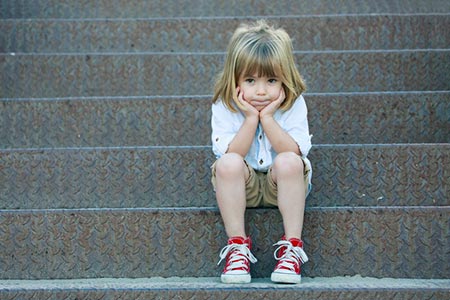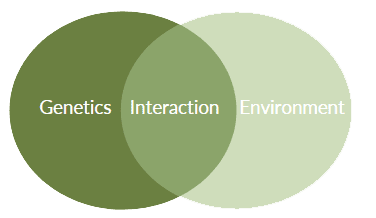Should We Adopt a Baby from a Family with a History of Mental Illness?

You are so excited when you get that call from your adoption coordinator that there is a birth mother who has chosen you to adopt her baby. Your coordinator starts to fill you in on the birth family’s information, and when she gets to the medical history, you hear that the mother has been diagnosed with schizophrenia or bipolar disorder. Your first thought is, “Oh no.” Adoption and mental illness may seem like a challenging decision because schizophrenia and its cousin bipolar disorder seem to be such scary words. So let’s take a look at what having a birth parent diagnosed with mental illness actually means.
The Facts About Adoption and Mental Illness
First, what are schizophrenia and bipolar disorder? According to the National Institute of Mental Health, schizophrenia is “a mental disorder characterized by disruptions in thought processes, perceptions, emotional responsiveness, and social interactions,” and bipolar disorder is “a mental disorder that causes unusual shifts in mood, energy, activity levels, concentration, and the ability to carry out day-to-day tasks.” While studies are ongoing regarding why these illnesses occur and the best way to treat them, it is known that they are both brought on by either genetic, environmental, or, more commonly, a combination of both factors.
Research has shown that if a parent is diagnosed with schizophrenia, their child has a 6% chance of developing the condition and a 10% chance of developing bipolar disorder if that was the diagnosis. First, lets look at those numbers in a more positive light. For schizophrenia, a child has a 94% chance of not experiencing schizophrenia and a 90% chance of not having bipolar disorder. Numbers are only part of the story, however.
The exact cause of mental illnesses is not known. What is known is that it seems to be a combination of interactions between genetic predisposition and environmental factors. For example, a study on twins was conducted, and it found that if one identical twin was diagnosed with schizophrenia, the other twin had a 40% chance of also having the illness, and with non-identical twins, that percentage went down to between 10% and 19%. What this tells us is that this mental illness is not purely genetic. If it were both identical twins would always both suffer from the same mental illness.

So is there a way to lessen the chance of experiencing mental illness? Yes, there seems to be. Positive lifestyle choices can help, such as:
- Exercise
- Healthy diet
- Adequate sleep habits
- Stress management
- Healthy relationships
- Avoidance of drugs and alcohol
While having a parent that has experienced mental illness may increase the odds slightly of that mental illness presenting in that child at some point, it is far from a likely issue. Having that medical history really just means that you will know, in the back of your mind, what signs to look for. You will also be able to inform your pediatrician so she will know what questions to ask and will let you know what you may need to be aware of. If you see any issues arise, you can get help early, and early intervention is known to help greatly.
Whether you give birth to a child or adopt a child, there are no guarantees of a perfect, healthy baby. A child with no genetic history of mental illness can develop one, and a child with mental illness documented in her history may have no issues at all. Studies are ongoing to understand how mental illness arises and how to treat it when it does. Adoption and mental illness does not need to be scary. Great progress is being made.
Get More Info Now
If you live outside of the United States, please click here.
Mardie Caldwell
Funding Your Adoption
Called To Adoption
Open Adoption Webinars

Lifetime Adoption, Inc. is a Licensed Child Placing Agency in Arkansas. (License AR #00050809)
Copyright © | Lifetime Adoption





